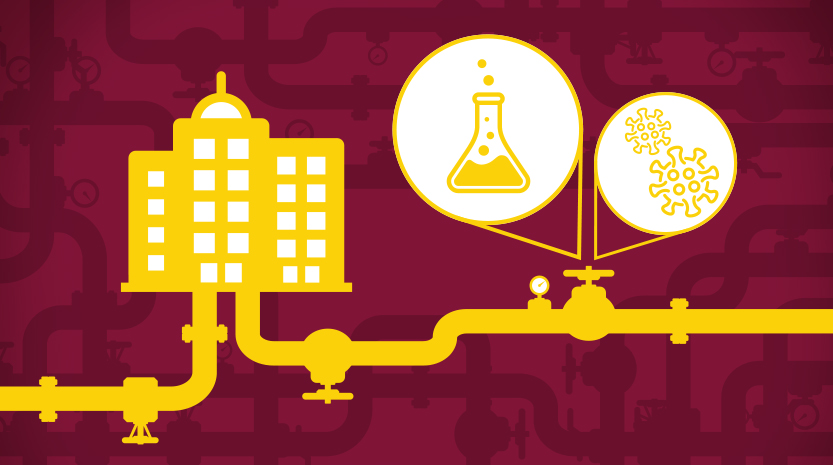New COVID-19 testing project promises community benefits
One community benefit of the Colorado Mesa University Safe Together, Strong Together return to campus planning initiative is the real-time research and innovation resulting from the efforts. In addition to robust testing protocols designed in part by CMU, and the campus' contact tracing protocol, the university is engaging a COVID-19 wastewater testing project that may serve as a community model. The project is supported by CMU partner Mesa County Public Health (MCPH).
"CMU has the expertise and resources to bring innovation to our community's pandemic response," said CMU President Tim Foster. "Our Safe Together, Strong Together leadership team advanced this concept and I believe it's a tool that can help other large employers and CMU partners moving forward."
Early detection of COVID-19 is critical to limiting its spread. This common knowledge is based on the idea that infected individuals spread the virus at the highest rates at the beginning of their illness even though some assume the spread only occurs when symptoms are experienced.
In order to identify pre-symptom infections, CMU faculty and students will begin testing wastewater to detect the virus before individuals begin to spread illness. When scientists test the wastewater for SARS-CoV-2, they can find the microbe even before people feel sick.
"This early-warning system for COVID-19 cases is particularly important in communal living conditions and closed campuses," said CMU Vice President John Marshall. "Others in the community such as primary and secondary schools could use this technology when CMU demonstrates its usefulness."
The implementation of wastewater testing is a result of the careful planning and vision of engineering faculty and the ongoing partnership between CMU and Mesa County Public Health. Dr. Kari Sholtes, a faculty member in the CMU/CU engineering partnership, was the driving force in the effort, paving the way for this pilot project. The two organizations have been designing a plan to test residence halls at least twice per week. The tests take periodic samples of wastewater throughput and flows for a 24-hour period. After the canisters are collected the water is analyzed for viruses. If the presence of SARS-CoV-2 is found, the students in the building can be tested early to isolate positive cases.
CMU Professor of Engineering Scott Kessler is participating in the project and is working with engineering students to design the sampling equipment. Students who are active in Engineers Without Borders as well as the CMU Civil Engineering Club are fabricating the equipment on campus.
CMU officials and Mesa County Health leaders plan to present the results of the program later this fall and offer support to others in the community who may benefit from the approach.
By detecting SARS-CoV-2 in dormitory wastewater prior to students feeling sick, CMU and MCPH can limit the spread of COVID-19 on campus, enabling students and faculty to focus on education.
"Innovation like this happens here because we have willing partners at Mesa County Public Health and innovative faculty and students who want to work towards solving our most difficult challenges," said Safe Together, Strong Together Co-Chair and Professor Amy Bronson, EdD.
Community members interested in the program are encouraged to email [email protected].
